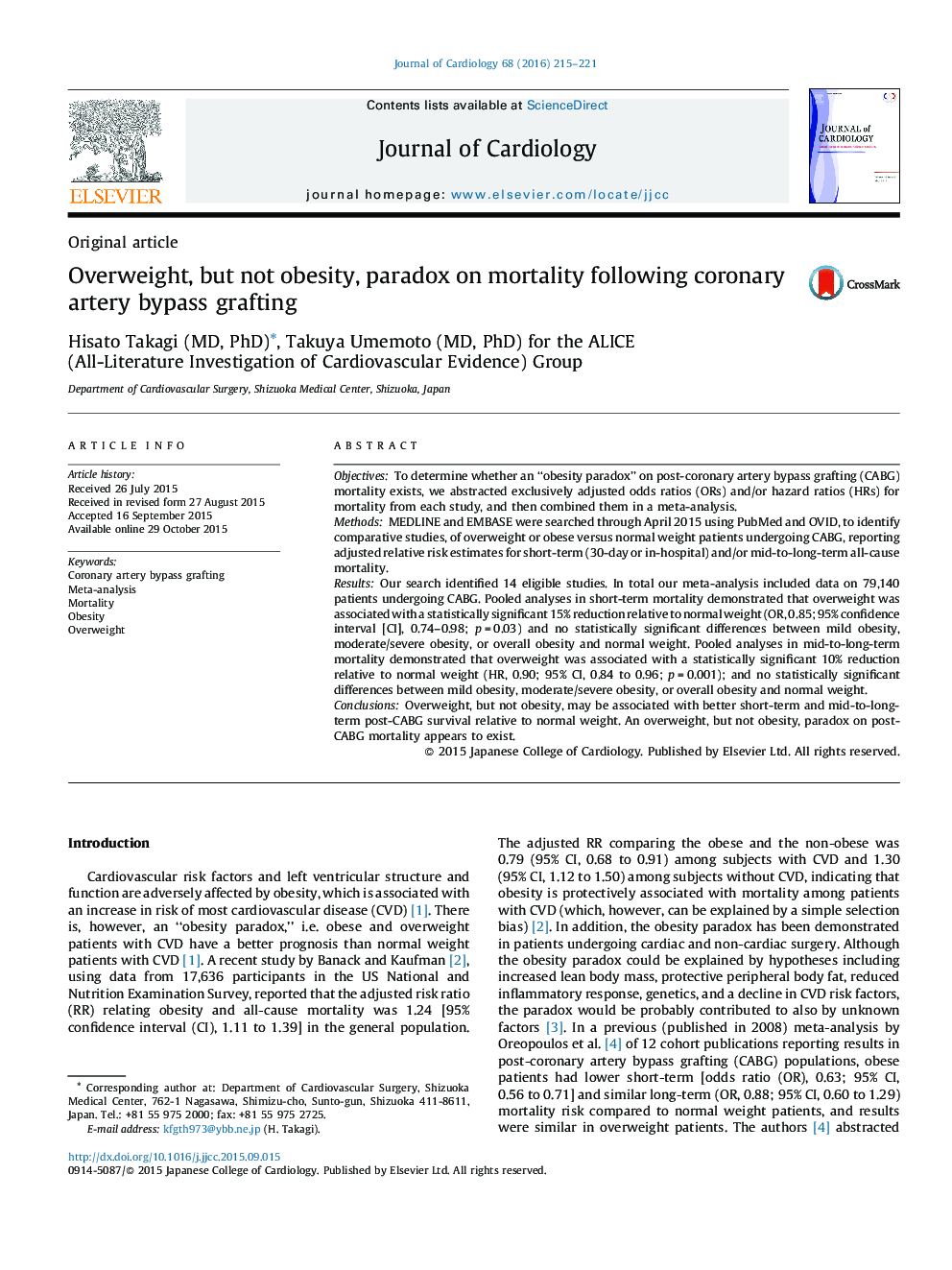| Article ID | Journal | Published Year | Pages | File Type |
|---|---|---|---|---|
| 2962770 | Journal of Cardiology | 2016 | 7 Pages |
ObjectivesTo determine whether an “obesity paradox” on post-coronary artery bypass grafting (CABG) mortality exists, we abstracted exclusively adjusted odds ratios (ORs) and/or hazard ratios (HRs) for mortality from each study, and then combined them in a meta-analysis.MethodsMEDLINE and EMBASE were searched through April 2015 using PubMed and OVID, to identify comparative studies, of overweight or obese versus normal weight patients undergoing CABG, reporting adjusted relative risk estimates for short-term (30-day or in-hospital) and/or mid-to-long-term all-cause mortality.ResultsOur search identified 14 eligible studies. In total our meta-analysis included data on 79,140 patients undergoing CABG. Pooled analyses in short-term mortality demonstrated that overweight was associated with a statistically significant 15% reduction relative to normal weight (OR, 0.85; 95% confidence interval [CI], 0.74–0.98; p = 0.03) and no statistically significant differences between mild obesity, moderate/severe obesity, or overall obesity and normal weight. Pooled analyses in mid-to-long-term mortality demonstrated that overweight was associated with a statistically significant 10% reduction relative to normal weight (HR, 0.90; 95% CI, 0.84 to 0.96; p = 0.001); and no statistically significant differences between mild obesity, moderate/severe obesity, or overall obesity and normal weight.ConclusionsOverweight, but not obesity, may be associated with better short-term and mid-to-long-term post-CABG survival relative to normal weight. An overweight, but not obesity, paradox on post-CABG mortality appears to exist.
